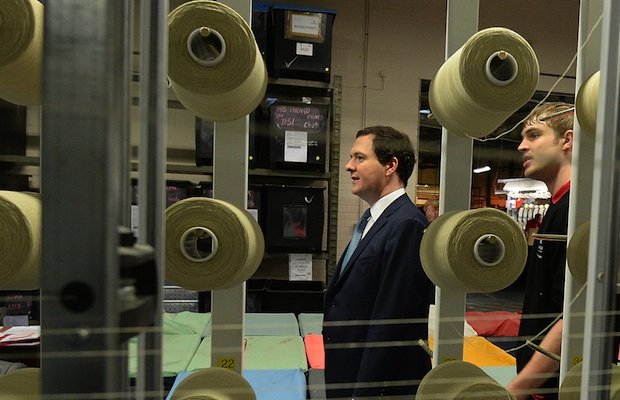GDP grows at fastest pace in three years, but is it sustainable?

Despite latest GDP estimates showing the fastest pace of growth in over three years, analysts are questioning whether such a pace can be sustained.
The UK saw GDP rise 0.8 per cent this morning, but this is still 2.5 per cent behind its pre-crisis peak, and means we have some catching up to do with the US and Germany.
Samuel Tombs of Capital Economics says that the estimate "confirms that the UK economy is currently enjoying a period of healthy and well-balanced growth." He continues to point out that, whilst the estimate is timelier here than overseas, "it seems likely that the UK economy recorded the fastest quarterly growth rate within the G7 in Q3 – at last, some compensation for several years of underperformance."
A squeeze on consumers' purchasing power, with real pay falling, means that GDP growth will continue to be under significant constraints, although it does seem to have "established a genuine firmer footing" says Archer. But, despite a slow pace, growing employment, tumbling mortgage rates, improving confidence and productivity still well below its potential, means it is also unlikely that recovery will fade, say Tombs.
Berenberg's Robert Wood points out that the economy is benefitting from last summer’s Bank of England action – central bank action usually works with a lag of around a year. Recovery is happening faster than the Bank had anticipated, with growth was above the 0.5 per cent quart-on-quarter rate they had forecast back in August and the quicker-than-expected fall in unemployment. On the back of this, Berenberg expect the first interest rate rise to come at least a year earlier than the late 2016 date the Bank has signalled.
Wood stresses that this is not yet a balanced recovery yet, "it is consumption led, as cheap financing encourages consumers into the shops, car showrooms and estate agents."A surging housing market, rise in retail sales – at the strongest rate for five years in the third quater – and a ten per cent jump in car sales in September saw "manufacturing rose on the back of the domestic strength, as yesterday’s CBI survey showed. Goods exports have been week in the third quarter." He adds "it would be better if this was an exports and investment driven recovery, but consumption led growth is OK for now. For starters it is much better than the quagmire of the past couple of years. Moreover, UK recoveries often start with consumption and broaden out into investment, because BoE monetary policy works most effectively through the housing market and household balance sheets."
Berenberg says that they see a good chance that the UK will find a firmer footing next year, of rising productivity, real incomes and investment. "The signs on the latter are still mixed, but we expect capital spending to pick up in the new year."
IHS Global Insight says:
Specifically, we expect GDP expansion to ease back to 0.6% quarter-on-quarter in the fourth quarter and to then essentially be sustained in a 0.5-0.6% range through 2014. As a result, we forecast GDP growth to come in at 1.4% overall in 2013, rising to 2.4% in 2014.